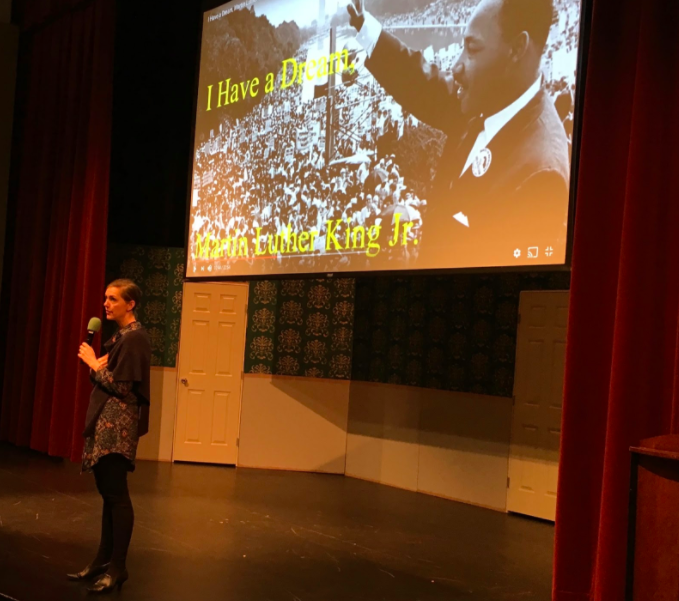Espacio honors civil rights activist
Head of School Rachel Simpson introduces a video of Martin Luther King Jr.’s “I Have a Dream” speech at assembly. As part of today’s assembly, students were asked to listen and reflect on the words in the speech.
January 14, 2017
In honor of Martin Luther King Jr.’s birthday on Monday, part of Martin Luther King Jr.’s infamous “I Have a Dream” speech was played at assembly today.
Students have the day off on Monday to commemorate Martin Luther King Jr., an activist who is remembered for his work in racial equality.
“Martin Luther King Jr. was a really crucial part of the fight for race equality,” sophomore Sydney Caba said. “It’s important to have that day to remember that we are not where we’re supposed to be and we still have a lot of work to do as a society.”
Sophomores are currently learning about different responses to oppression, and according to English teacher Rachael Denny, Martin Luther King Jr. is a good example of a response to oppression.
“I think it’s important to note people in history who have demonstrated great courage in the face of adversity,” Denny said. “Martin Luther King Jr. is an excellent example.”
It’s important to remember Martin Luther King Jr. because he was able to change the hearts and minds of people hundreds of years ago, according to junior Starr Hooper.
“He was able to open the eyes of people who lived through a racist perspective,” Hooper said. “But he was able to change their perspectives to think differently of people who don’t look like them.”
It has almost been 50 years since King Jr. died, but his ideas and actions are still relevant today, according to Denny.
“That’s what we want our students to do,” Denny said. “ We want them to demonstrate great courage and respond with courage to the forms of oppression they see in their lives.”










